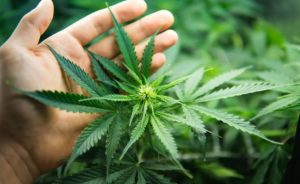If you would like to grow cannabis yourself, you will find numerous guides on the Internet that will help you create your own garden. Nevertheless, newcomers keep making the same mistakes that negatively affect the quality of the harvest or even endanger the entire cultivation. Getting the right cannabis seeds is essential.
Common Mistakes You Should Avoid
Here are a few typical mistakes and how to avoid them:
-
- Seeds
 should only be purchased from reputable dealers. Promises that are too high should be enjoyed with skepticism and, especially at the beginning, better buy from larger and better-known shops.
should only be purchased from reputable dealers. Promises that are too high should be enjoyed with skepticism and, especially at the beginning, better buy from larger and better-known shops. - Patience is required as soon as the cannabis seeds germinate. It can take up to seven days for a seedling to sprout. During this sensitive time, the moistened seeds should not be touched and left in a dark place. Occasionally it can be re-moistened, but the germ area must not be too wet.
- Many newbies mean it too well. You overfertilize your plants or fertilize them too early. The basic rule is that you should never fertilize before the first two correct leaves have appeared. You can usually recognize over-fertilization by the fact that the leaves suddenly twist and curl up. It is essential to stop fertilizing and spray the affected plants with distilled water for the next few days. Incidentally, organic fertilizer leads to over-fertilization less often, as it only releases its active ingredients very slowly.
- Many people make the mistake of harvesting their buds too early. A certain impatience, especially with newbies, is understandable, but it torpedoes a good harvest. In the last two weeks of growing cannabis, 25 percent of the buds grow on the plants. Only when about a quarter of the small hairs on the hemp flowers are brown should you start flushing. Here, the plants are poured with distilled water to free the end product of fertilizer residues.
- If you want to grow your cannabis outdoors, you have to wait for the right time. Newbies always start too early, but even if a warm week falls in April, the weather at this time is still too volatile for outdoor cultivation. Ideally, you should wait at least until mid or late May to start growing. If you plant earlier, the cuttings can begin and, in some cases, even grow taller, but they will produce fewer flowers and thus yield.
- Seeds
Every beginner should bring a bit of calm and serenity. Those who inspect their plants five times a day with a magnifying glass and, preferably, still touch them often do more harm than good. Checking every now and then for signs of a problem helps to intervene in good time, but generally, “take it easy” applies.

 should only be purchased from reputable dealers. Promises that are too high should be enjoyed with skepticism and, especially at the beginning, better buy from larger and better-known shops.
should only be purchased from reputable dealers. Promises that are too high should be enjoyed with skepticism and, especially at the beginning, better buy from larger and better-known shops.